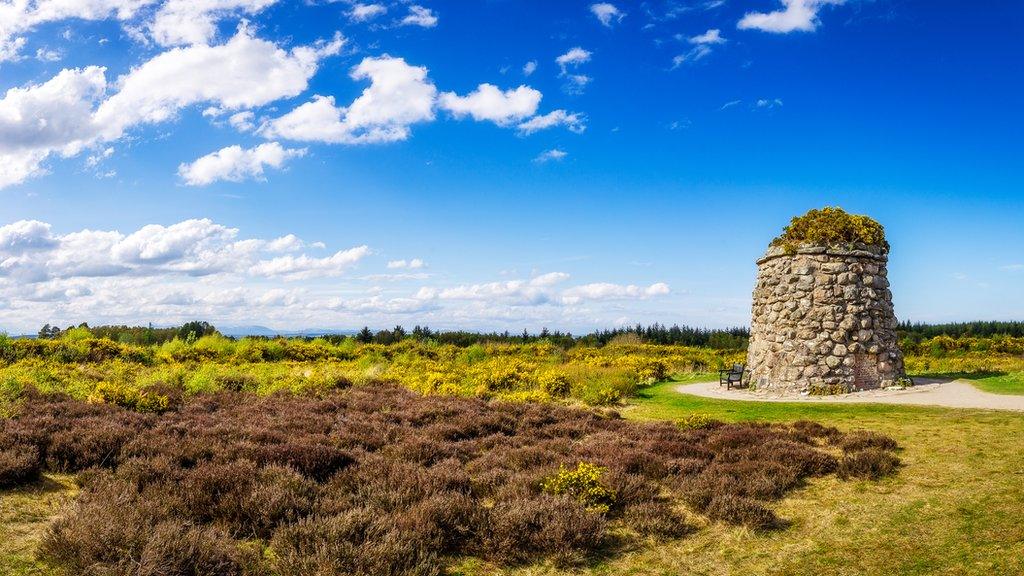Call for memorial in Carlisle to executed Jacobites
- Published
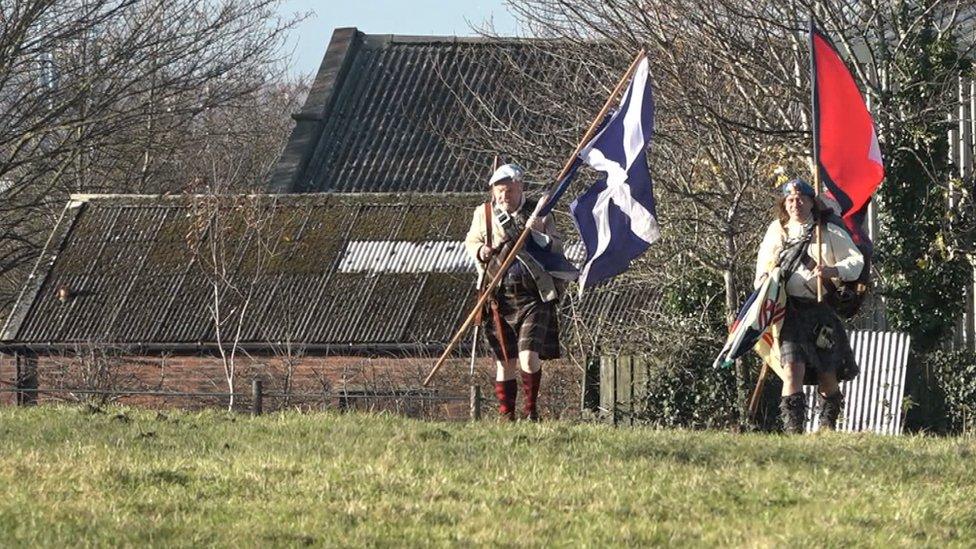
Kenneth Borthwick, right, at Harraby Hill in Carlisle
Calls have been made for a permanent memorial to be erected to Jacobite soldiers who were executed in Carlisle following the Battle of Culloden.
Twenty men were hanged at Harraby Hill on 18 October 1746, six months after a Jacobite army defeated by government forces in the battle near Inverness.
Campaigner Kenneth Borthwick said the men were taken to Carlisle from jails in Aberdeen, Edinburgh and Glasgow.
After they were put to death, they were buried in unmarked graves.
Culloden saw forces loyal to Bonnie Prince Charlie defeated by the Duke of Cumberland's government army.
Described as the last pitched battle on British soil, it was over in less than an hour and involved the deaths of about 1,600 men - with 1,500 of them Jacobites.
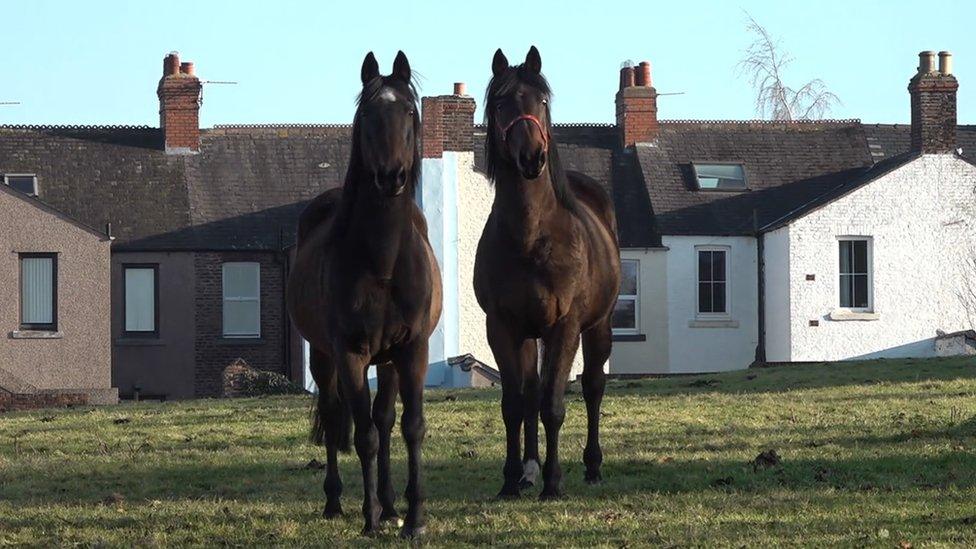
The hill today is an area of fields and houses
In the aftermath of the battle, many Jacobites were imprisoned and later executed.
Mr Borthwick said he had managed to identify where some of the men executed on Harraby Hill, an area of houses and fields near Carlisle's London Road, were buried in the graveyard of the city's St Cuthbert Church.
He said: "A traitor's death was to be hung drawn and quartered.
"But it also meant you did not get a grave stone because you weren't considered to be worthy of it.
"So they lie there in a churchyard. I know where some of them are now, but they don't have a permanent memorial there either, which I think is a shame for a city like Carlisle."
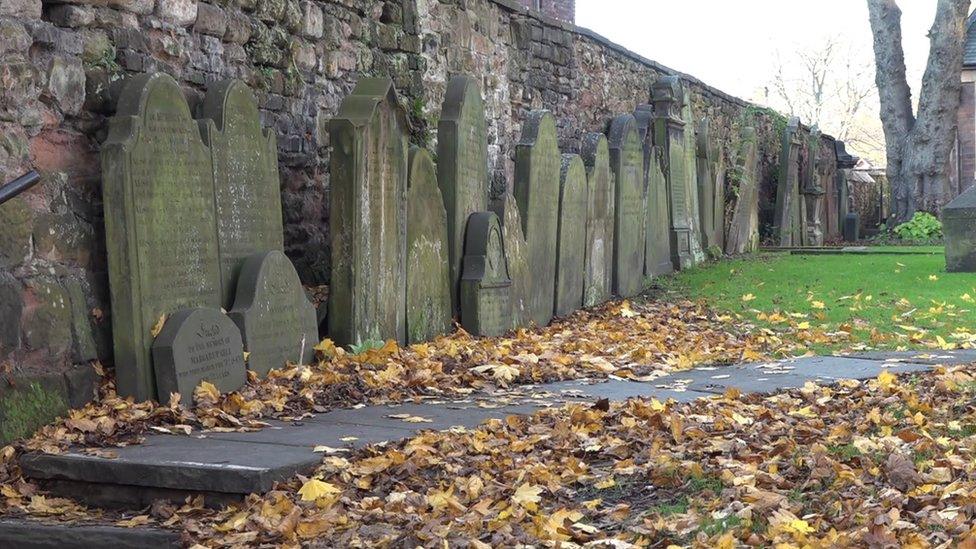
The executed Jacobites were buried in unmarked graves in a Carlisle churchyard
Dr Angus MacKenzie, of the University of Glasgow, said Carlisle had been an important location to Bonnie Prince Charlie and his supporters.
He said: "Carlisle has a significant place in the context of the Jacobite rebellion.
"It was important to Prince Charles as he wished to seize at least some land in England."
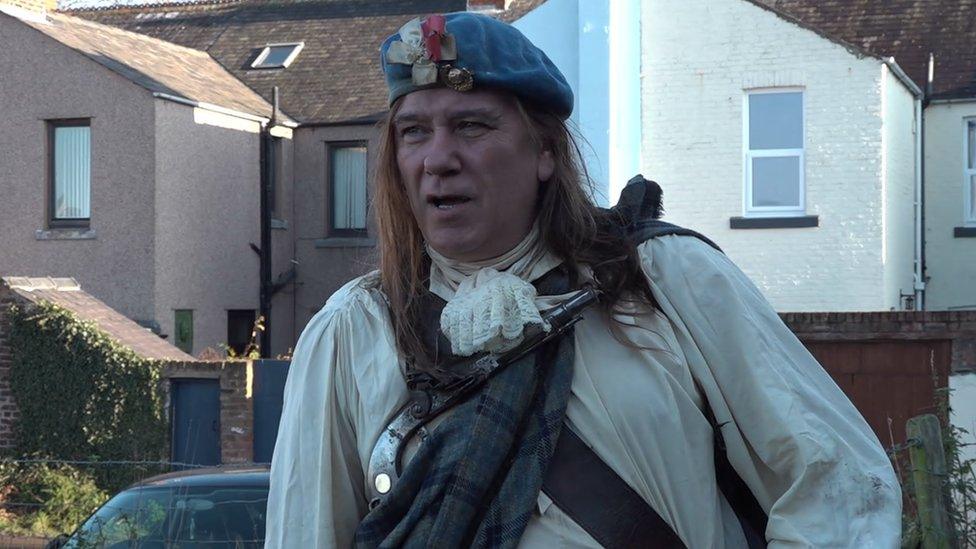
Among Bonnie Prince Charlie's most famous supporters to be put to death was Simon Fraser, 11th Lord Lovat and known as The Old Fox.
He was was executed in London in 1747.
It was believed his body was smuggled back to Scotland by members of his clan.
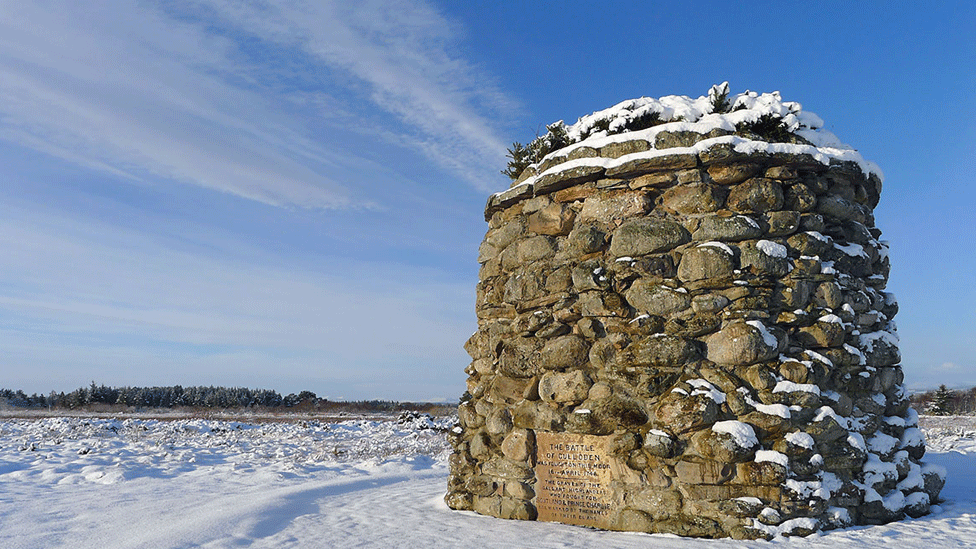
The 273rd anniversary of the Battle of Culloden will be marked this April
However, a forensic study of what were thought to be his remains in a casket at Wardlaw Mausoleum at Kirkhill, near Inverness, showed they were those of an unidentified woman.
The Culloden Battlefield centre is preparing to mark the 273rd anniversary this April.
Ahead of the planned events, the National Trust for Scotland, which runs the centre and manages the battlefield, has secured museum accreditation status for the site.
The designation from Museums Galleries Scotland means the centre can now make claim to any archaeological discoveries found on the site near Inverness.
Previously, any archaeological finds on the battlefield were managed by Highland Council.
- Published4 January 2019
